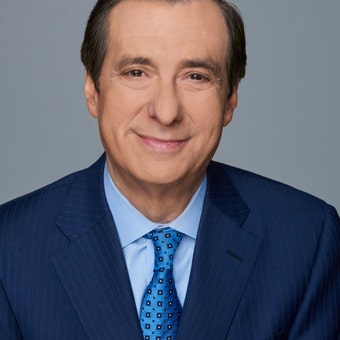Biden 'ghost gun' orders are about 'political points,' not making people safer: Jones
Fox News contributor Joey Jones on gun-rights activists being skeptical of President Biden's gun control measures.
Joe Biden didn’t try to sugarcoat the fact that he wasn’t doing very much.
"We have a long way to go, it seems like we always have a long way to go," he said yesterday.
What he was doing, on a warm Washington day, was bowing to political reality.
The president announced minor steps on gun control because that’s all he could legally squeeze out of executive orders. He is stymied on the Hill and he knows it. There’s no way Congress will approve even a measure for expanded background checks that has strong majority support in the polls.
As if to underscore the futility of Biden’s action, he acknowledged getting word Wednesday night of another gun tragedy, this one in South Carolina. Former NFL player Phillip Adams killed five people, including a doctor who had been treating him and his family, and then killed himself.
Biden might have seized on the brief burst of momentum that followed the mass shootings in a Boulder supermarket and in Atlanta-area spas. The president spoke out, demanded action on his legislation, and then let the issue drop.
AS PRESS EMBRACES BIDEN AGENDA, WHITE HOUSE LEAKS HAVE DISAPPEARED
That, in my view, was by design. Biden didn’t want to derail his big-ticket economic packages for a fight he was destined to lose. Under the Senate’s arcane rules, it is easier for him to push through $2-trillion spending bills than to close background check loopholes. And even if he didn’t face a filibuster threat, Democrats like Joe Manchin are opposed to all but the most incremental gun measures. In a 50-50 Senate, Biden doesn’t have the votes.
No one can doubt Biden’s sincerity on this issue. During his years as vice president, Biden fought hard to pass gun restrictions after Sandy Hook and other tragedies. Congress wouldn’t budge. Now, even with Democratic control and the NRA in bankruptcy, it doesn’t seem to matter.
As the New York Times noted matter-of-factly: "The initiatives announced Thursday do not match in scope his commitment to the issue over the course of his career, particularly his time as a senator. In 1993, Mr. Biden played a key role in the passage of the landmark Brady Handgun Violence Prevention Act. A year later, he helped authorize a 10-year ban on assault weapons."
"Biden’s moves come amid growing impatience from gun control activists because the administration has not acted more quickly," says the Washington Post.
The president tried to preempt what he called "phony arguments" by conservatives that he was flouting the Constitution. "Nothing, nothing I’m about to recommend in any way impinges on the Second Amendment," he said, adding that no amendment is absolute: "You can’t yell fire in a crowded theater."
Perhaps the most significant move is the effort to stem the tide of "ghost guns," those assembled at home from different parts contained in a kit. Biden wants to close this loophole by requiring background checks for the purchase of such kits, which produce guns with no serial numbers.
The president also wants to extend firearms law to so-called stabilizer braces, which effectively turn a handgun into a short-barrel rifle by improving accuracy. He noted that the Boulder shooter had used such an arm brace.
And he’ll urge states to pass "red flag" laws allowing petitions to temporarily remove firearms from people deemed dangerous—but it’s only a suggestion.
SUBSCRIBE TO HOWIE'S MEDIA BUZZMETER PODCAST, A RIFF OF THE DAY'S HOTTEST STORIES
Those who believe in gun rights see any bill or order as a slippery slope toward greater government control, and they vote with great intensity. A number of congressional Democrats lost their seats in 1994 after Bill Clinton pushed through gun-control legislation.
What Biden was doing yesterday was trying to maintain some street cred with the assembled gun control advocates and such victims as Gabby Giffords. But the media quickly moved on after the last mass shootings, and are likely to do so again.


